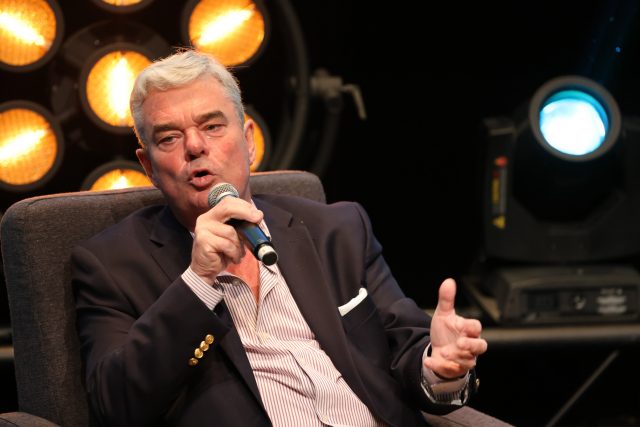This website uses cookies so that we can provide you with the best user experience possible. Cookie information is stored in your browser and performs functions such as recognising you when you return to our website and helping our team to understand which sections of the website you find most interesting and useful.
Olivier Bernard: ‘Global warming has been good for Bordeaux’
“Global warming has been good for Bordeaux – the worst is in front of us,” said Olivier Bernard, director of Domaine de Chevalier, when speaking last week at a symposium organised by Vinexposium.

The event, called Act for Change, was held at Bordeaux’s Cité du Vin on 20 and 21 June, and gathered 35 experts representing 17 nationalities for a series of discussions on the future of wines and spirits between now and 2030.
Beginning the symposium, Bernard was invited to speak on the future of fine wines, during which he addressed the issue of climate change, and the effect on recent vintages in his region of production, Bordeaux, as well as the potential impact of warmer weather on harvests in five to 10 year’s time.
Initially, he said that rising temperatures have helped improve the quality of Bordeaux, noting that in the last century, it was always “warm” years that yielded “great vintages”.
In the past decade too, hotter, drier conditions have led to first-rate wines, with Bernard mentioning the quality of a string of recent vintages.
“2015, 16, 18, 19 and 20, we have had five great vintages in seven years, and I have never seen that in all the history of Bordeaux, so global warming for Bordeaux at the moment is great, even if we have some weather that is difficult, like hail or frost,” he said.
However, having commented that the worst is yet to come, he said that wine producers would have to “learn to put the foot on the break.”
Continuing, he said that winemakers in Bordeaux would have to reconsider their mix of grapes to continue to make balanced wines if temperatures continue to rise, while noting that the future of whites from the region could be under threat.
“A warm terroir with 60-70% Merlot is already too much: Merlot was great when Bordeaux was looking for maturity,” he said, referring to the fact this grape ripens earlier than the other major grape in the region: Cabernet Sauvignon.
Observing that some in Bordeaux are already “experimenting with grapes that mature later,” he said, mentioning varieties from the Douro, such as Touriga Nacional, he added, “I am sure that in the next 20 years Bordeaux will see the arrival of new grape varieties.”
While he recorded that plantings of Cabernet Sauvignon along with Petit Verdot were increasing at the expense of Merlot in Bordeaux, he then said, “We have to be very careful with the whites,” referring to the effect of climate change on Sauvignon Blanc and Semillon used to make dry white wines in the region.
As for viticultural techniques to combat the impact of rising temperatures, he stressed the importance of vine row orientation.
“You should have a north to south orientation, that’s a little bit open to the west, because the sun is stronger at 3pm in the afternoon than it is at 12pm, and you have to respect that; 100% of the vineyards in Bordeaux should be working on that orientation, and I’m surprised not to see that in every vineyard,” he said.
He also said that he was “thinking on bio [organic] and biodynamic more than ever, because that is the way today, and I hope that in the next 15-20 years we will discover a new way of protecting the vineyard against mildew; we will discover a magic formula in bio, and the guy that does will be very rich.”
Finally, in terms of wine style, he forecast a bright future.
“The wines produced in the 80s were very different from wines produce today… and they were very different from wines produced in the 60s, which were very different from the wines made in the 20s… and in the next 20-30 years we will see another evolution in wine – it will be more fine, more elegant, and more bio,” he concluded.

